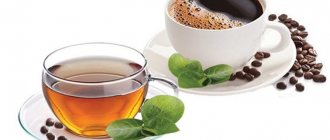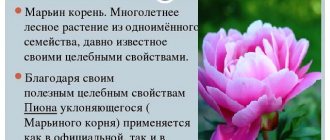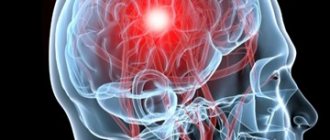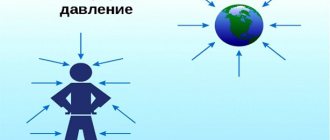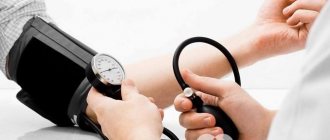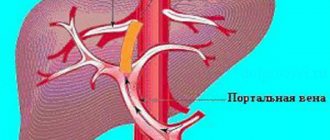Vitamins for high blood pressure
Having decided to take vitamins, a patient with hypertension should know which vitamins reduce blood pressure and which ones act on the contrary and cause harm to the body. Rich in essential substances, as well as macro- and microelements, these small tablets are not a panacea for hypertension. They are only auxiliary substances to the main medications for this disease, if it is in the third or fourth stage, that is, in an already deeply advanced state. But if hypertension is in its early stages, vitamins can help maintain normal blood pressure. By regularly taking the necessary macronutrients, the patient can reduce the dosage of essential medications, or even abandon them altogether.
Do vitamins raise or lower blood pressure?
To normalize blood pressure, doctors recommend that hypertensive patients adhere to several rules, in particular a special diet, because many foods and drinks increase blood pressure, but there are also those that lower blood pressure. By correctly combining products, the patient can avoid headaches or nausea. Each vegetable or fruit contains a certain number of vitamins and microelements that can increase or decrease blood pressure. Thus, salt or caffeine can cause the tonometer scale to jump several notches, because sodium-chlorine, which is abundant in salt, helps retain water in the body, and excess fluid leads to increased blood pressure. Caffeine makes the heart beat faster and push blood through the vessels harder, which leads not only to possible arrhythmia, but is also contraindicated in hypertension. Instead, it is recommended to drink it at low blood pressure.
Names of vitamin complexes
Vitamins and bioactive supplements are not essential medications, but are well suited for complex therapy. The table shows the names of the most effective drugs, according to cardiologists:
| Name | Description |
| "Magnesium B6" | Magnesium tablets with vitamin B6 for hypertension are prescribed more often than any other drugs. They are effective and safe combination drugs designed to eliminate the lack of magnesium in the body. |
| "Antiox" | Improves blood circulation, prevents blood clots and strengthens vascular walls. The complex contains vitamin A, which quickly accumulates in cells, which can cause hypervitaminosis. Therefore, long-term use of the drug is not recommended. |
| "Ascorutin" | Replenishes the lack of vitamin P and C in the human body. In combination, these elements help normalize oxidative and reduction processes. In addition, vitamin C and rutin improve the condition of vascular walls and prevent their fragility. |
| "Cardiofit" | It consists of a unique natural complex and is designed to support the cardiovascular system. Has a sedative and mild hypotensive effect. It is often prescribed in the complex therapy of hypertension, heart failure and endocrine system disorders. The composition contains components such as valerian root, hawthorn, peppermint, motherwort, thyme and much more. |
| "Maxi-person" | The composition of the multivitamin is impressive; among the components there are substances such as vitamins A, B, ascorbic acid, calcium, magnesium, potassium and others. The complex helps strengthen blood vessels, restore heart rhythm, improve blood circulation, lower cholesterol and lower blood pressure. Regular use helps improve the condition of hypertensive patients in a short time. Taken in complex therapy with antihypertensive drugs (as prescribed by a doctor). |
| "Be healthy" | The main task is to replenish vitamins and minerals in the body. Recommended for insomnia, nervous system disorders and hypertension. Helps eliminate nervous disorders, normalize heart function and strengthen the vascular system. |
| "Astrolin" | The drug belongs to active dietary supplements and is made on the basis of natural ingredients. Astrolin is rich in fiber, vitamins, microelements and other beneficial substances. The main component is pear root. Particularly useful for hypertension accompanied by diabetes. Prevents heart attack, stroke and heart failure. |
In addition to vitamins and microelements, in case of arterial hypertension it is necessary to maintain the balance of fatty acids. Doctors often recommend taking Omega 3 and Omega 6 complexes. They help improve the condition of the heart and blood vessels, strengthen the body as a whole and, most importantly, normalize blood pressure.
Also, for hypertension, taking folic acid will be useful, it strengthens the vascular walls and prevents the development of complications from the cardiovascular system.
Important! Vitamin complexes, like any other medications, have contraindications. What vitamins you can take for arterial hypertension can only be recommended by a doctor. Self-selection of medications is prohibited, as this often leads to hypo-hypervitaminosis and other aggravating consequences.
Elevated homocysteine levels
Individuals who experience even slightly low levels of vitamin B12 also have elevated homocysteine levels. Elevated levels of homocysteine are associated with heart disease and stroke. Plasma homocysteine has been associated with high blood pressure in large community studies, according to the American Heart Association. In evidence taken from the Framingham Heart Study and published in 2003, researchers found that people with hypertension had elevated levels of homocysteine. You can reduce your potential for increased homocysteine levels by getting enough vitamin B12.
Atherosclerosis
In a study published in 2006 in Current Atherosclerosis Reports, researchers assessed the role of elevated blood homocysteine levels in promoting atherosclerosis, usually caused by vitamin B deficiency. Elevated homocysteine levels increased the risk of cardiovascular disease and cerebral vascular disease. Treatment for this disorder primarily involves supplementation with folic acid, vitamin B6, and vitamin B12. Atherosclerosis causes hardening of the arteries and increased blood pressure. Supplementing with vitamin B12 may help reduce them.
Hypertension
Vitamin B12 supplementation occurs in weight loss clinics and among people who believe they may be deficient due to poor diet or self-diagnosis. According to the mayoclinic. com, while some clinics offer vitamin B12 as part of their programs, unless you have a deficiency, it is unlikely to help. However, according to Acu-Cell Nutrition, when you get too much vitamin B12, it can lead to severe calcium deficiency. People with low calcium levels are at higher risk of developing hypertension, according to the University of Maryland Medical Center. This means that when vitamin B12 is taken to excess, you risk lowering your calcium levels and increasing your risk of developing hypertension.
Healthy care info
While vitamin B-12 has many functions in your body, one of its most important jobs is creating red blood cells. If you have a B-12 deficiency, your body cannot pump blood properly, which can lead to low blood pressure. Additional B-12 supplementation can help reduce low blood pressure that registers at this level due to B-12 deficiency. However, you should always follow your doctor's advice regarding the proper treatment of blood pressure disorders.
Impact on pressure
Ascorbic acid can both increase and decrease blood pressure - it all depends on the individual characteristics of the person.
The effect of the drug on the body is ambiguous:
- The product provokes the release of nitric oxide, which promotes relaxation and dilation of blood vessels, reducing the risk of blood clots. Because of this property, blood pressure levels may decrease.
- The drug thins the blood, accelerates blood circulation, increasing blood pressure. And with hypersensitivity to the drug, overdose, or combination with other targeted medications, the hypertensive effect increases.
Due to these properties, both hypertensive and hypotensive patients can take ascorbic acid. The main thing is to strictly follow the doctor's recommendations. Exceeding the dosage or prolonged use of the medication can cause an inadequate reaction in the body in the form of a hyper- or hypotonic crisis.
Functions of B-12
Proper neurological signaling, energy production and red blood cell formation are just a few of the body functions vitamin B-12 plays a role in. According to the Linus Pauling Institute, vitamin B-12 is primarily present in two forms in your body: methylcobalamin and 5-deoxyadenosylcobalamin. The latter is necessary for your body to absorb energy from food; however, it is also important for the production of hemoglobin, the compound in your red blood cells that carries oxygen.
Because B-12 is heavily involved in your body's production of hemoglobin and red blood cells, a deficiency of B-12 can contribute to a condition called anemia. According to Women's Health. gov, this condition occurs when you don't have enough red blood cells or your red blood cells don't have enough hemoglobin. This means your blood can't carry enough oxygen from your lungs to the rest of your body, leading to symptoms such as fatigue and dizziness. However, a more dangerous complication from anemia is low blood pressure.
Where is vitamin B 12 found?
It is impossible to imagine the normal functioning of the body without vitamin B 12. The human body is not able to independently produce cyanocobalamin (this is the scientific name of this vitamin).
A deficiency of this substance leads to serious diseases such as anemia or anemia. Therefore, it is necessary to use foods high in growth vitamin in your diet.
From this article you can find out what happens when there is a deficiency or lack of cyanocobalamin, as well as where vitamin B 12 is found.
Properties of vitamin B 12
Scientists recognize vitamin B 12 as one of the most amazing substances. The ability to preserve cyanocobalamin in food is possible due to its resistance to light and temperature changes.
Also, a distinctive feature of this vitamin is its ability to accumulate in the human liver, that is, if foods containing growth vitamin are excluded from the diet, the body will begin to use up reserves of this substance.
Promotes bone growth
It is not for nothing that vitamin B 12 is popularly called the growth vitamin. It is he who is responsible for the formation of bone tissue. If there is a lack of cyanocobalamin in a growing body, then there is a high probability of slower bone growth.
Metabolism improves
Vitamin B 12 is necessary to speed up metabolism. Therefore, nutritionists recommend including foods rich in growth vitamins in your diet.
Blood pressure normalizes
Cyanocobalamin is able to normalize blood pressure and increase hemoglobin. Pregnant women, nursing mothers and patients with anemia need to take this substance daily.
Restores mental balance
Vitamin B 12 can help fight depression and insomnia, because it protects nerve fibers and is responsible for the proper functioning of the brain. Cyanocobalamin is also responsible for the construction of genetic material, scientifically called nucleic acids.
Vitamin B 12 deficiency
A lack of cyanocobalamin in the human body can cause very serious consequences.
The most common is anemia, accompanied by a number of unpleasant symptoms such as dizziness, headache and even loss of consciousness.
Also, with a lack of vitamin B 12, a very dangerous and practically incurable disease develops - multiple sclerosis. The main symptoms of cyanocobalamin deficiency:
- Lethargy;
- Loss of attention;
- Irritability;
- Deterioration of vision;
- Decreased immunity.
Excess vitamin B 12 in the body
Excess vitamin B 12 is extremely rare. Negative effects on the human body are possible if the recommended daily dose of cyanocobalamin is regularly exceeded. The main cause of side effects is the increased activity of the vitamin.
An overdose of cyanocobalamin can be recognized by the following symptoms: excessive nervous excitability, pain in the heart muscle, or even a malfunction in the cardiovascular system. Poor absorption of the vitamin can be caused by taking hormonal or contraceptive medications.
Cyanocobalamin is a water-soluble vitamin, hence it is excreted from the body through urine. Therefore, its level decreases on its own after some time.
Vitamin B12: the body receives mainly from animal and poultry meat, offal, fish and seafood
What does vitamin B 12 contain?
The body's need for vitamin B 12 is very small, it is only 0.001 grams per year. This rate increases for pregnant women and nursing mothers. If the human body does not receive the required amount of this substance, then health will be in great danger. In order to consume the required daily dose of cyanocobalamin, you need to know where vitamin B 12 is found.
Vitamin B 12 in food
The human body is not able to produce vitamin B 12 on its own, so regular consumption of foods high in cyanocobalamin is necessary. The largest amount of this substance is found in products of animal origin:
- In liver - beef and pork;
- In meat - chicken, rabbit, pork and lamb;
- In the liver - kidneys, heart, lungs;
- In seafood - octopus, crabs, shrimp;
- In fish - salmon, herring, sardine
Vitamin B 12 is found in small quantities in fermented milk products such as milk, cottage cheese and some types of cheeses. Small doses of growth vitamin are found in eggs, seaweed, spinach and celery. However, to get the daily requirement you will have to eat a very large amount of these products.
Arterial pressure
Low blood pressure or hypotension can be dangerous, but fortunately it is easy to treat. When your heart doesn't have enough blood to pump through your arteries, your blood pressure can drop significantly. Symptoms of low blood pressure may include dizziness, fainting, nausea, pale skin, fatigue and rapid breathing. A severe drop in blood pressure can even cause oxygen deprivation as your heart is unable to pump enough oxygenated blood throughout the body, leading to damage to the heart and brain. However, treating low blood pressure due to B-12 deficiency can be as simple as taking a supplement.
Addition
Your body can usually get enough B-12 from your diet and regulate its amount. Despite this, sometimes people have trouble absorbing the vitamin due to various diseases or other conditions. This is especially common in older people who have reduced absorption capacity due to their age. For this reason, older adults should get their daily B-12 through a supplement, which will help prevent low blood pressure. However, if you think your low blood pressure is caused by a B-12 deficiency, talk to your doctor before treating it with a B-12 supplement.
Vitamin B1 (thiamine).
Vitamin B1 plays a central role in the breakdown of carbohydrates. The need for vitamin B1 increases in old age, pregnancy, breastfeeding, exercise, increased thyroid function, a diet high in sugar, bread, pasta and other processed carbohydrate foods, and alcohol abuse.
In cardiovascular diseases, there is likely to be an increased need for this cellular energy source.
The recommended daily requirement for vitamin B1 for adults is 1.5 mg2.
Vitamin B1 is present in sunflower seeds, sesame seeds, soybeans, peas, peanuts, pollock, pork, cashew nuts, beans, Hercules flakes, buckwheat, beef liver, chum salmon, egg yolk, grain bread, navaga.
As an additional dose, it is recommended to take 50-100 mg and in some situations up to 300 mg.
In our country, the most common form of vitamin B1 is thiamine hydrochloride.
Large doses of vitamin B1 should be balanced by taking the entire complex of B vitamins, otherwise a physiological imbalance may occur in the coordinated work of B vitamins.
Vitamin B1 should be used with caution during cancer chemotherapy.
Foods containing essential vitamins and minerals
The table shows products that can be used to compensate for the lack of one or another useful substance in the body.
| Component | Products |
| A | Spinach, eggs, carrots, parsley, cottage cheese, fish, liver, milk, apricots, berries. |
| B1 | Oatmeal, buckwheat, millet, bran, greens, sunflower seeds, beans, potatoes, peas. |
| B2 | Meat, fish, liver, milk, eggs, cabbage, tomatoes, almonds, turnips, wheat, dairy products, cottage cheese, cheeses. |
| B3 | Meat, kidneys, peanuts, sunflower seeds, corn, millet, buckwheat, oats, mushrooms. |
| B6 | Greens, rice, avocado, banana, cabbage, oats, carrots, beans, beef, liver, herring, walnut kernels. |
| B12 | seafood, liver, fish, cheese, dairy products, beef. |
| C | Bell pepper, any citrus fruits, fresh herbs, any cabbage, rose hips, black currants, kiwi, spinach, wild strawberries, strawberries. |
| P | Buckwheat, apricots, rose hips, lettuce, black currants, orange, cherries. |
| D | Fish oil, egg yolk, cod, salmon, liver, kidneys, fish caviar, hard cheeses, mushrooms, parsley, butter, dairy and fermented milk products. |
| Potassium | Potatoes, meat, dried fruits, nuts, soybeans, barley, oats, buckwheat, mushrooms, wild garlic, pomegranate, sea fish, dairy products, cheeses. |
| Magnesium | Liver, lentils, bran, peas, beans, wheat germ, almonds, walnuts, buckwheat, millet, watermelon, spinach, egg yolk. |
| Calcium | Sesame, yogurt, dairy products, cheeses, canned fish, cottage cheese, meat, spinach, herbs, eggs, cabbage, herbs, fish, black currants, bananas, grapefruit, apples. |
| Phosphorus | Almonds, sesame seeds, pine nuts, processed cheese, bran, soybeans, meat, cod, herring, liver, pearl barley, beans, oatmeal. |
Vitamins and microelements undoubtedly play a huge role in human life. But if any pathology is present, then multivitamin complexes alone will not be enough to support the body. In addition, it is necessary to follow a certain diet, lead a healthy and active lifestyle, and also avoid stress.
Related Articles
How does alcohol affect blood pressure - does it increase or decrease it?
Blood pressure control diary: sample, filling rules
Malignant arterial hypertension
Hypertensive nephropathy
On which arm is blood pressure measured?
Nephrogenic arterial hypertension
Vitamin B3 (niacin or niacin).
Niacin is involved in most reactions associated with the breakdown of carbohydrates, fats and proteins and the extraction of energy from them.
For patients with cardiovascular diseases, Vitamin B3 in the form of nicotinic acid has the ability to influence blood lipid parameters in large dosages (2-6 grams).
This is one of the few tools that can simultaneously:
- Reduce bad LDL cholesterol levels by 10-26%.
- Increase good HDL cholesterol levels to 33%.
- Reduce triglyceride levels by 20-50%.
- Reduce lipoprotein levels to 35%.
- The recommended daily allowance for vitamin B3 for adults is 20 mg.
- Vitamin B3 is found in peanuts, fried liver, wheat bran, natural and canned tuna, mackerel in oil, chicken, beef, turkey, horse mackerel, buckwheat, and whole grain wheat bread.
Vitamin B3, which is normally present in the body and is not a medicine, is classified as a pharmaceutical in large gram dosages (2-6 g). Additional intake of nicotinic acid is associated with serious side effects and should only be done under strict medical supervision.
Ascorbic acid for blood pressure
In medical practice, vitamin C is not used as a targeted medication for hypertension. The substance has an ambiguous effect on the body:
- ascorbic acid provokes the release of nitric oxide, which helps relax the walls of blood vessels and prevents the formation of blood clots. When the pressure is higher than normal, this effect dilates the blood vessels, normalizing the indicators;
- however, sometimes the substance has the opposite effect. Ascorbic acid increases blood pressure in case of overdose or hypersensitivity of the body.
Doctors note that the property of vitamin C to increase blood pressure is not direct, but a side effect of the substance that occurs due to prolonged or uncontrolled use of the drug.
In medicine, the use of vitamin C as a targeted drug against hypertension is not practiced.
Minerals
A list of important microelements in order of importance for the body is given below.
Magnesium
This is the main mineral that is taken to treat high blood pressure; its deficiency in most cases causes the development of hypertension, so it is so important to replenish it.
Magnesium is perfectly absorbed by the body in tablet form, which can be purchased at the pharmacy. Taking it improves metabolic processes, heart and intestinal function, reduces blood pressure, and eliminates stress in the body. Humans naturally produce small amounts of magnesium and need to be constantly replenished.
This requires consuming more foods such as legumes, rice and wheat bran, as well as cereals, buckwheat, pumpkin and watermelon seeds, flax seeds, nuts, cocoa, and lentils. Magnesium is found in greens, as it participates in the formation of color, so be sure to include sorrel, cabbage, and with them parsley, dill, sage, basil and spinach in your diet.
Potassium
It is responsible for normal metabolism and water-salt balance. It has the power to rid the body of excess water and sodium, which lead to the formation of edema. potassium has a beneficial effect on muscle activity and osmotic pressure; if it is normal, then the risk of hypertension is much reduced.
A lack of potassium can affect you at the most inopportune moment, when a spasm of the coronary vessels occurs, and without it the risk of a heart attack increases.
To replenish potassium, you can buy a vitamin-mineral complex in pharmacies, and it is also found in plant foods: dried apricots, potatoes, green vegetables, it is also present in mushrooms, citrus fruits, nuts, raisins and tea.
To get more of this mineral, you need to eat the listed foods fresh; when they are cooked, most of the potassium evaporates.
Phosphorus
This mineral is involved in the functioning of the entire body. There is more of it in nature than other trace elements. It has a beneficial effect on the nervous and muscular system.
Phosphorus is directly involved in biochemical reactions occurring in the body and is one of the building materials of bone tissue.
The mineral, in collaboration with proteins and acids, is able to break down fats, thereby preventing the formation of plaques inside the walls of blood vessels. But not only it should be in abundance, but also calcium, proteins and carbohydrates, otherwise it will not be able to cope with the functions assigned to it. Fish, all types of cheese and meat are rich in phosphorus.
Sodium
It controls fluid content in the body. Sodium is contained in certified salt, so its excessive consumption leads to the accumulation of excess fluid, contributes to the appearance of edema and breathing difficulties.
If there is a lack of this mineral, problems arise with the functioning of the heart muscle. In order to maintain vascular tone and stabilize blood pressure levels, it is necessary to consume it in moderation and better together with potassium, which can regulate its amount.
Sometimes patients with hypertension are prescribed a diet without salt, then lemon juice and various spices are used instead, but it should be short-lived, since this mineral cannot be completely avoided. The lack of salt is fraught with the accumulation of nitrogenous waste in the blood.
Calcium
It has a positive effect on the circulatory system and prevents hypertensive crisis in most cases. The main effect of calcium on the body is to strengthen the walls of blood vessels and muscles; sufficient levels of this vitamin guarantee strong arteries and prevent their narrowing. Nuts, dairy products, oatmeal and fruits are rich in calcium.
What foods reduce blood pressure in hypertension?
Vitamins
They cannot cure hypertension themselves, but they enhance the effect of other drugs that fight the disease. Vitamins take part in the blood supply to tissues, relieve tension in the walls of blood vessels and strengthen the body’s defenses. Among them there are those that, when consumed daily, lower blood pressure levels.
Vitamin B6 (pyridoxine).
In cardiovascular diseases, vitamin B6 takes part in reducing the level of homocysteine in the blood, a powerful factor in vascular damage and the development of atherosclerosis. Vitamin B6 controls the work of 2 reactions in the conversion of homocysteine to cysteine. In terms of its versatility, vitamin B6 can only be compared with vitamin C.
A study involving 20 people showed that taking vitamin B6 for 4 weeks at a dosage of 5 mg per kg of body weight led to a decrease in systolic blood pressure from 167 to 153 mm Hg. Art. and diastolic blood pressure from 108 to 98 mm Hg. Art. Practicing doctors are well aware of the beneficial effects of vitamin B6 in conditions of hypertension at dosages almost 10 times lower. The beneficial effects of vitamin B6 in hypertension are due to the calming of the sympathetic nervous system, as well as the removal of excess fluid from the body.
Vitamin B6 is found in many foods: beans, chicken liver, soybeans, walnuts, Atlantic fatty mackerel, tuna, hazelnuts, beef and pork liver, category 1 chickens, pork and beef muscle tissue, whole grain wheat bread.
Additional vitamin B6 intake can be obtained from multivitamin-mineral preparations, B vitamin complexes, and as a separate vitamin.
Vitamin B6 is available in pharmacies in the form of pyridoxine hydrochloride and pyridoxal phosphate.
Vitamin B6 alone is not able to normalize homocysteine levels; to do this, it must act together with folic acid or vitamin B12.
Folic acid.
Folic acid belongs to the folate family, which is present in a metabolically active form in plants and animals. But unlike thermally unstable folates, folic acid is synthesized specifically for vitamin supplements.
In recent years, folic acid has gained attention in connection with the problem of homocysteine. The active form of folate controls a key reaction in the pathway that converts homocysteine to methionine. And a decrease in homocysteine in the blood leads to a decrease in the risk of cardiovascular diseases. Folic acid is well represented in food products, it is found in: chicken liver, beef and pork, soybeans, porcini mushrooms, parsley, cod liver, beans, spinach, walnuts, hazelnuts, almonds, lettuce, wild garlic, low-fat cottage cheese, rye bread , wheat, whole grain bread
Vitamins for hypertension: which is the most important and how to take it
There are many reasons why hypertension can occur. One of them is an unbalanced diet. The explanation for this is very simple - a lack of nutrients that are responsible for the functioning of vital organs. Vitamins for hypertension are practically a “lifeline”, since thanks to them, the recovery process can significantly accelerate.
What vitamins are needed
Vitamins and microelements play an important role in human life. Their deficiency can lead to the development of various diseases and aggravate existing pathology. With hypertension, it is very important to monitor the balance of beneficial micro- and macroelements in the body, because many of them actively support the heart and vascular system.
The main source of vitamins is fruits and vegetables; when there are not enough of them, you can compensate for their deficiency with the help of tablets
Vitamin A
Its deficiency significantly increases the risk of developing hypertension. Vitamin A supports the functioning of the myocardium and vascular system, lowers blood pressure, thins the blood, and also reduces the risk of cholesterol plaques. It is best to take this vitamin not in the form of tablets, but in a multivitamin complex, for example, “Levit” or “Aevit” and others.
Note. Taking vitamin A should begin with consultation with a doctor, since improper use can lead to the opposite effect and a jump in blood pressure.
Vitamin B1
The second name is thiamine. The main qualities include stimulation of muscle function and restoration of the nervous system. It can be taken in the form of multivitamin complexes, tablets, or by injection. If the lack of vitamin in the body is not significant, then, in addition to medications, you can eat foods rich in thiamine.
Properties of thiamine
Vitamin B2
Riboflavin plays a huge role in oxidative and metabolic processes. It is responsible for converting glucose and starch into energy, as well as supplying oxygen to cells. In addition, the vitamin improves the functioning of the cardiovascular system. If there is a deficiency of riboflavin in the body, a person:
- Vision deteriorates;
- Performance decreases;
- Weakness and apathy occur.
In hypertension, a lack of vitamin B2 leads to worsening symptoms and increased blood pressure. Therefore, it is important to monitor the level of riboflavin in the body. You can take vitamin complexes, but tablets with riboflavin as the only active ingredient are best.
Vitamin B3
Nicotinic acid is very important for arterial hypertension accompanied by atherosclerosis. The element actively participates in almost all metabolic processes and is capable of lowering cholesterol levels in the blood.
Thanks to this component, moderate vasodilation occurs, which improves blood flow and lowers blood pressure. Nicotinic acid is divided into easily digestible and difficult to digest.
For arterial hypertension, doctors recommend the first option.
Vitamin B3, or also called PP, is found in the most familiar foods to us.
Vitamin B6
The second name is pyridoxine. This vitamin is produced by the human body, in particular, by intestinal microflora, but not always. For example, if the intestines are damaged by any infection, its production stops. It is at this point that vitamin B6 should be replenished by taking a multivitamin. The most common people who suffer from pyridoxine deficiency are:
- Alcohol abusers;
- With vascular atherosclerosis;
- With disorders of the cardiovascular system.
With a lack of vitamin, the quality of vision deteriorates, excessive irritability, drowsiness, and often depression appear.
Vitamin B12
It is used very often to treat various vascular pathologies. Its value lies in its ability to improve blood composition and metabolism, lower cholesterol levels and regulate blood clotting.
With a deficiency of this element, anemia develops, the central nervous system malfunctions and blood flow deteriorates.
For hypertension, it is recommended to use B12 in combination with pyridoxine (B6), because the elements enhance each other’s effect.
Vitamin C
Helps improve vascular walls, saturates the body with oxygen and inhibits the activity of harmful substances in the body.
In case of hypertension, this element is very important; without it it is almost impossible to overcome the disease. Doctors recommend consuming Vitamin C at least 100 mg daily.
A lack of ascorbic acid leads to bleeding gums, increased fatigue, and can also cause a sharp deterioration in well-being.
Vitamin D
Responsible for the circulatory system, blood vessels and heart function. A deficiency of this vitamin leads to increased blood pressure, which is unacceptable for hypertension.
Scientists have proven that while taking this component, you can reduce blood pressure by 2-3 mm. Hg without any antihypertensive drugs.
This means that regular use of vitamin D for hypertension will help normalize blood pressure levels and reduce the risk of sudden surges.
Vitamin D is considered the sun vitamin because it is produced in the human body thanks to sunlight.
Vitamin P
Rutin is very useful for hypertension. Cardiologists prescribe it to patients to prevent vascular fragility and improve blood circulation. Vitamin P is often prescribed together with ascorbic acid. Rutin can be replenished with foods or multivitamin complexes.
Note. Vitamins are very important for high blood pressure, but flavonoids are no less useful. They prevent vascular spasms and have a mild hypotensive effect. The richest content of these substances is found in berries.
Useful microelements
A deficiency of certain microelements can have a detrimental effect not only on certain organs, but on the entire body as a whole.
Minerals must be consumed in combination with vitamins - this will improve their absorption by the body
If we talk about hypertension, the most important components are:
- Magnesium - significantly reduces cholesterol levels in the blood, dilates vascular walls and promotes better absorption of calcium. For hypertension, as a rule, Magnesium with vitamin B6 is prescribed, since it is this drug that shows the best results for this pathology.
- Calcium - relieves tone from vascular walls and reduces their permeability. In addition, calcium helps improve blood clotting and supports cardiac function. Cardiologists say that with regular intake of foods rich in calcium, you can achieve a decrease in blood pressure by 10-15 units without additional medications.
- Phosphorus is responsible for almost all processes in the human body, ensures the full functioning of the nervous system, and also ensures the breakdown of fats and prevents the occurrence of vascular atherosclerosis.
- Potassium is an important element for the heart, responsible for heart rate. It has been repeatedly proven that with a sufficient amount of potassium in the body, hypertension develops extremely rarely. A deficiency of this microelement leads to oxygen starvation of the myocardium, thereby increasing the risk of developing acute heart failure.
These components are very important for hypertension, but other macro- and microelements are no less useful, as they enhance each other’s effects.
Names of vitamin complexes
Vitamins and bioactive supplements are not essential medications, but are well suited for complex therapy. The table shows the names of the most effective drugs, according to cardiologists:
NameDescription
| "Magnesium B6" | Magnesium tablets with vitamin B6 for hypertension are prescribed more often than any other drugs. They are effective and safe combination drugs designed to eliminate the lack of magnesium in the body. |
| "Antiox" | Improves blood circulation, prevents blood clots and strengthens vascular walls. The complex contains vitamin A, which quickly accumulates in cells, which can cause hypervitaminosis. Therefore, long-term use of the drug is not recommended. |
| "Ascorutin" | Replenishes the lack of vitamin P and C in the human body. In combination, these elements help normalize oxidative and reduction processes. In addition, vitamin C and rutin improve the condition of vascular walls and prevent their fragility. |
| "Cardiofit" | It consists of a unique natural complex and is designed to support the cardiovascular system. Has a sedative and mild hypotensive effect. It is often prescribed in the complex therapy of hypertension, heart failure and endocrine system disorders. The composition contains components such as valerian root, hawthorn, peppermint, motherwort, thyme and much more. |
| "Maxi-person" | The composition of the multivitamin is impressive; among the components there are substances such as vitamins A, B, ascorbic acid, calcium, magnesium, potassium and others. The complex helps strengthen blood vessels, restore heart rhythm, improve blood circulation, lower cholesterol and lower blood pressure. Regular use helps improve the condition of hypertensive patients in a short time. Taken in complex therapy with antihypertensive drugs (as prescribed by a doctor). |
| "Be healthy" | The main task is to replenish vitamins and minerals in the body. Recommended for insomnia, nervous system disorders and hypertension. Helps eliminate nervous disorders, normalize heart function and strengthen the vascular system. |
| "Astrolin" | The drug belongs to active dietary supplements and is made on the basis of natural ingredients. Astrolin is rich in fiber, vitamins, microelements and other beneficial substances. The main component is pear root. Particularly useful for hypertension accompanied by diabetes. Prevents heart attack, stroke and heart failure. |
In addition to vitamins and microelements, in case of arterial hypertension it is necessary to maintain the balance of fatty acids. Doctors often recommend taking Omega 3 and Omega 6 complexes. They help improve the condition of the heart and blood vessels, strengthen the body as a whole and, most importantly, normalize blood pressure.
Also, for hypertension, taking folic acid will be useful, it strengthens the vascular walls and prevents the development of complications from the cardiovascular system.
Important! Vitamin complexes, like any other medications, have contraindications. What vitamins you can take for arterial hypertension can only be recommended by a doctor. Self-selection of medications is prohibited, as this often leads to hypo-hypervitaminosis and other aggravating consequences.
Foods containing essential vitamins and minerals
The table shows products that can be used to compensate for the lack of one or another useful substance in the body.
ComponentProducts
| A | Spinach, eggs, carrots, parsley, cottage cheese, fish, liver, milk, apricots, berries. |
| B1 | Oatmeal, buckwheat, millet, bran, greens, sunflower seeds, beans, potatoes, peas. |
| B2 | Meat, fish, liver, milk, eggs, cabbage, tomatoes, almonds, turnips, wheat, dairy products, cottage cheese, cheeses. |
| B3 | Meat, kidneys, peanuts, sunflower seeds, corn, millet, buckwheat, oats, mushrooms. |
| B6 | Greens, rice, avocado, banana, cabbage, oats, carrots, beans, beef, liver, herring, walnut kernels. |
| B12 | seafood, liver, fish, cheese, dairy products, beef. |
| C | Bell pepper, any citrus fruits, fresh herbs, any cabbage, rose hips, black currants, kiwi, spinach, wild strawberries, strawberries. |
| P | Buckwheat, apricots, rose hips, lettuce, black currants, orange, cherries. |
| D | Fish oil, egg yolk, cod, salmon, liver, kidneys, fish caviar, hard cheeses, mushrooms, parsley, butter, dairy and fermented milk products. |
| Potassium | Potatoes, meat, dried fruits, nuts, soybeans, barley, oats, buckwheat, mushrooms, wild garlic, pomegranate, sea fish, dairy products, cheeses. |
| Magnesium | Liver, lentils, bran, peas, beans, wheat germ, almonds, walnuts, buckwheat, millet, watermelon, spinach, egg yolk. |
| Calcium | Sesame, yogurt, dairy products, cheeses, canned fish, cottage cheese, meat, spinach, herbs, eggs, cabbage, herbs, fish, black currants, bananas, grapefruit, apples. |
| Phosphorus | Almonds, sesame seeds, pine nuts, processed cheese, bran, soybeans, meat, cod, herring, liver, pearl barley, beans, oatmeal. |
Vitamins and microelements undoubtedly play a huge role in human life. But if any pathology is present, then multivitamin complexes alone will not be enough to support the body. In addition, it is necessary to follow a certain diet, lead a healthy and active lifestyle, and also avoid stress.
